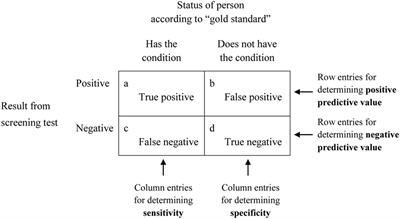I have a medical diagnostic test $A$ and test $B$. Test $B$ is the current gold standard. Test $A$ has an excellent negative predictive value and if it is negative, test $B$ is not performed as it is invasive.
However if test $A$ result is positive above certain cut off, test $B$ is performed to confirm the results. I have about $600$ patients who had test $A$, and about $200$ patients who tested positive with test $A$ were then tested with $B$ to confirm the findings.
I want to test the accuracy of test $A$ against test $B$, for the $200$ hundred positive results on test $A$:
- How can I get the sensitivity/specificity analysis ? as I have positives & negatives for test $B$ but only positives for test (A).
- What statistical methods will be suitable to compare the accuracy of test (A) against test $B$, the gold standard.

